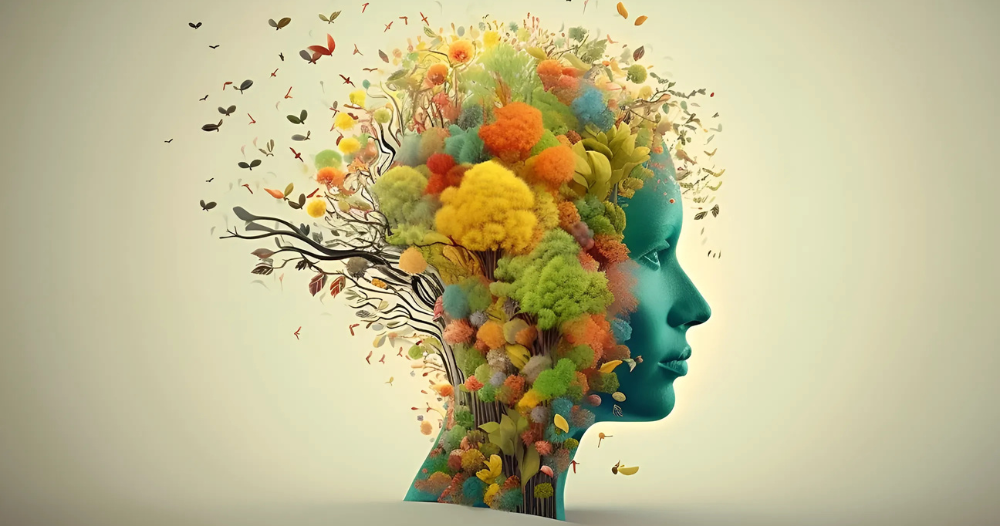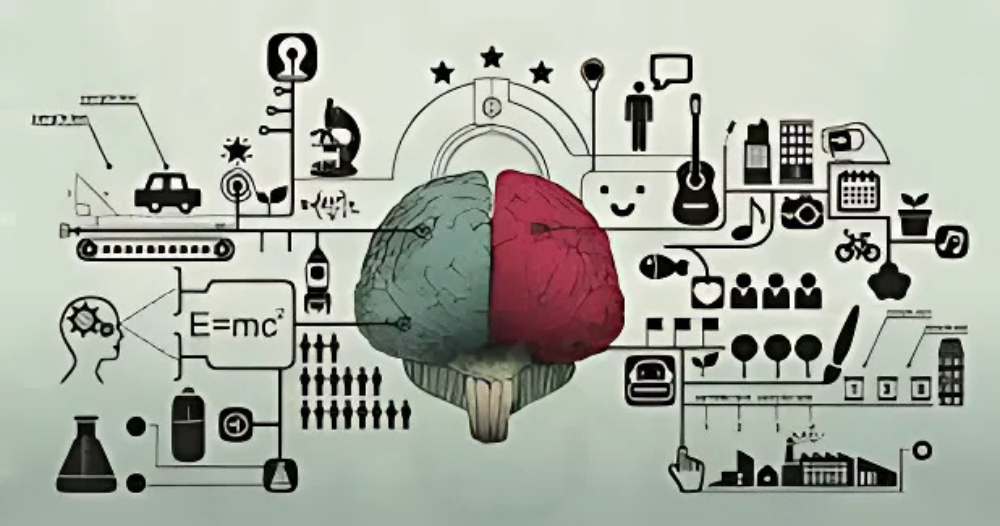Discover the various types of human psychology and how they shape our thoughts, behaviors, and emotions. Learn how understanding these psychological types can help you improve your relationships, career, and well-being!
Table of Contents
Introduction
Ever wondered what makes people tick? Why do some folks seem to have a calm demeanor, while others are like a ball of energy? It all comes down to human psychology! Our thoughts, feelings, and behaviors are influenced by a complex array of human psychology factors, and that’s why people can be so diverse. Understanding the different types of human psychology can give us insights into why we act the way we do and why others behave the way they do too. Whether you’re curious about how the mind works, or you just want to understand the people around you better, learning about the different types of human psychology can make a world of difference.
In this article, we’re going to break down the most prominent types of human psychology, look at how they influence our daily lives, and explore how they can help us improve our relationships, mental health, and personal growth. Ready? Let’s dive in!
What Are the Different Types of Human Psychology?

When we talk about human psychology, we’re really talking about the different approaches to understanding the mind, emotions, and behaviors. Over time, psychologists have identified several distinct branches of psychology, each focusing on a unique aspect of human experience. Let’s look at some of the most well-known types of human psychology and how they affect our daily lives.
1. Cognitive Psychology: The Science of Thought
Cognitive psychology is all about how we process information. From how we learn to how we solve problems, this type of psychology explores the mental processes that influence our decision-making, memory, perception, and language. It’s like taking a peek into the mental toolbox we use every day!
Key Elements of Cognitive Psychology:
- Perception: How we interpret the world around us.
- Memory: How we store and recall information.
- Decision-Making: How we make choices and judgments.
- Problem-Solving: How we figure out solutions to challenges.
Ever tried remembering someone’s name but couldn’t quite grasp it? That’s your cognitive system at work (or at least, trying to work!). Cognitive psychology helps us understand why some people excel at problem-solving and others struggle with simple tasks. It’s a fascinating field that can tell you a lot about how you think!
2. Behavioral Psychology: The Power of Action
Behavioral psychology focuses on observable actions. Instead of peering into the depths of the unconscious or the workings of the mind, behavioral psychologists study how people behave in different situations and what causes these behaviors. It’s like watching a person’s every move and figuring out what drives them to act that way.
Key Elements of Behavioral Psychology:
- Conditioning: The process by which we learn new behaviors through rewards or punishments.
- Stimuli and Responses: How external events trigger reactions.
- Reinforcement: How certain behaviors are encouraged or discouraged through consequences.
This type of psychology can help explain why you might automatically reach for a snack when you’re stressed or why certain habits are so hard to break. It’s all about the influence of external factors and how they shape our actions over time!
3. Humanistic Psychology: The Focus on Personal Growth
Humanistic psychology takes a more positive and personal approach. It looks at the ways people strive to reach their full potential. Instead of focusing on disorders or flaws, humanistic psychology focuses on personal growth, self-actualization, and understanding the inherent goodness in people. It’s the “feel-good” approach to psychology!
Key Elements of Humanistic Psychology:
- Self-Actualization: The realization of one’s full potential.
- Personal Growth: The journey of self-improvement and understanding.
- Maslow’s Hierarchy of Needs: The theory that we have basic needs (like food and safety) that must be met before we can achieve higher levels of growth and happiness.
Have you ever experienced that “Aha!” moment where everything just clicked, and you felt on top of the world? That’s self-actualization at work! Humanistic psychology is all about the pursuit of happiness and personal fulfillment.
4. Psychoanalytic Psychology: The Power of the Unconscious Mind
Psychoanalytic psychology dives into the unconscious mind, seeking to uncover the hidden forces that influence our thoughts and actions. Developed by Sigmund Freud, this branch of psychology explores how past experiences, especially childhood ones, can shape our personalities and behavior. It’s like opening a secret vault of memories and emotions!
Key Elements of Psychoanalytic Psychology:
- The Unconscious Mind: The hidden part of our mind that influences our behavior without us realizing it.
- Defense Mechanisms: How we protect ourselves from uncomfortable emotions or thoughts.
- Dream Analysis: How our dreams can reveal unconscious desires and fears.
Ever had a dream that left you wondering, “What does that mean?” Psychoanalytic psychology suggests that these dreams might reveal deeper truths about your hidden feelings and unresolved issues. Fascinating, right?
5. Social Psychology: The Study of Group Dynamics
Social psychology looks at how people are influenced by others, and how group dynamics shape our behavior. It’s all about understanding how we interact with others and how social environments can affect our decisions, attitudes, and emotions. Whether it’s peer pressure, groupthink, or the desire to fit in, social psychology explains why we sometimes act differently in a group than when we’re alone.
Key Elements of Social Psychology:
- Group Behavior: How people behave in groups versus individually.
- Conformity and Obedience: How we tend to follow the crowd or authority figures.
- Social Perception: How we view and interpret the actions of others.
Have you ever acted differently at a party just to blend in or felt peer pressure from a group? Social psychology can help explain why we sometimes make decisions based on social influence, even if we don’t realize it!
6. Developmental Psychology: Understanding Growth Over Time
Developmental psychology focuses on how people change and grow over their lifetime. It looks at the psychological development of humans, from infancy to old age, and everything in between. This type of psychology studies how our thinking, emotions, and behaviors evolve as we age and experience different stages of life.
Key Elements of Developmental Psychology:
- Child Development: How kids develop emotionally, cognitively, and socially.
- Adolescent Development: How teenagers navigate identity, relationships, and independence.
- Adult Development: How adults handle aging, career changes, and life transitions.
Ever wonder why teenagers sometimes seem so impulsive or why kids seem to develop personalities so early on? Developmental psychology helps us understand how people go through different life stages and how those stages shape who we are.
Conclusion
Human psychology is incredibly diverse, with each type offering unique insights into how we think, feel, and behave. Whether it’s cognitive psychology explaining how we make decisions or social psychology shedding light on group behavior, understanding these psychological approaches can give you a better understanding of yourself and others. So next time you’re puzzled by someone’s actions or looking to improve your own mindset, remember that psychology is there to offer answers!
Whether you’re trying to boost your personal growth, improve your relationships, or just understand why people act the way they do, diving into the types of human psychology is an exciting way to gain deeper insights into the mysteries of the human mind!
Learn Human Psychology: Basic, Theories and Types
For Video Content: Checkout Our Youtube Channel
FAQs About the Types of Human Psychology
What is the main focus of humanistic psychology?
Humanistic psychology is all about personal growth and self-actualization. It focuses on helping individuals realize their potential and achieve happiness by understanding their inner selves.
How does social psychology differ from behavioral psychology?
Social psychology is concerned with how our thoughts, feelings, and behaviors are influenced by other people and social situations, while behavioral psychology focuses more on observable behaviors and the conditioning that shapes them.
What’s the difference between cognitive and developmental psychology?
Cognitive psychology deals with how we process information, make decisions, and solve problems, whereas developmental psychology looks at how we grow and change over the course of our lives.
Can understanding different types of psychology improve relationships?
Absolutely! Understanding the different types of psychology can help you understand how people think, feel, and behave in different situations, which can improve communication and empathy in relationships.
By: Ardansharma



Pingback: What is Toxic Shame and How it Affect Your Life?